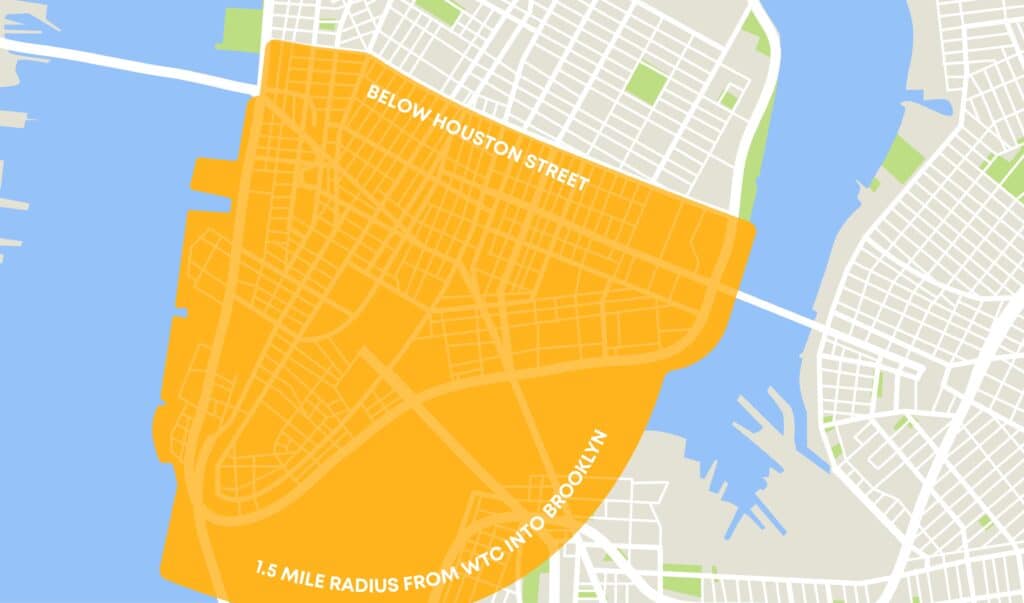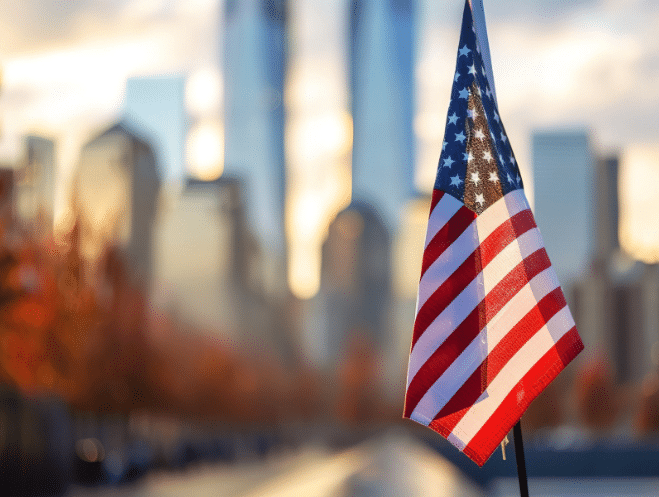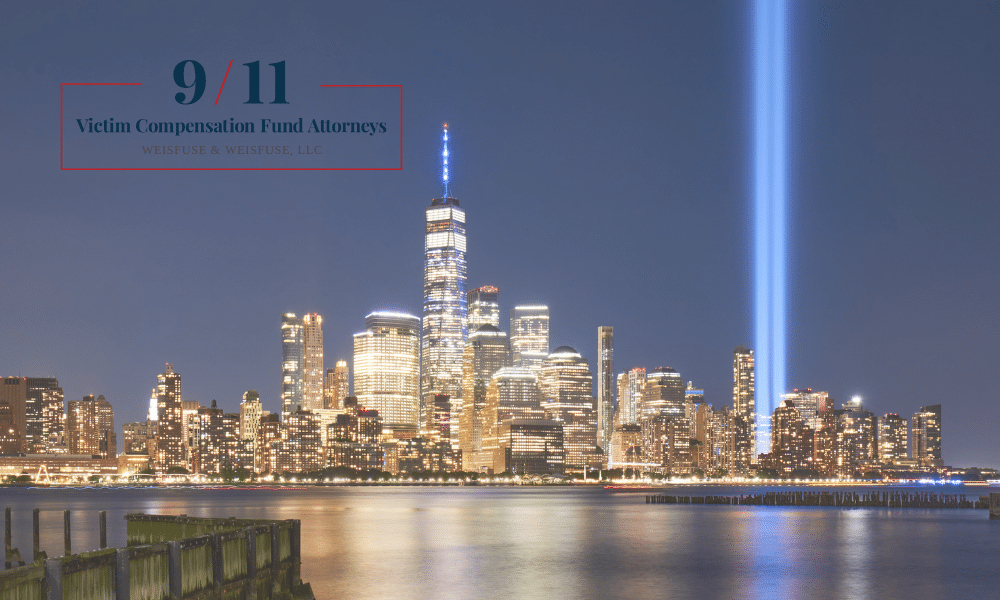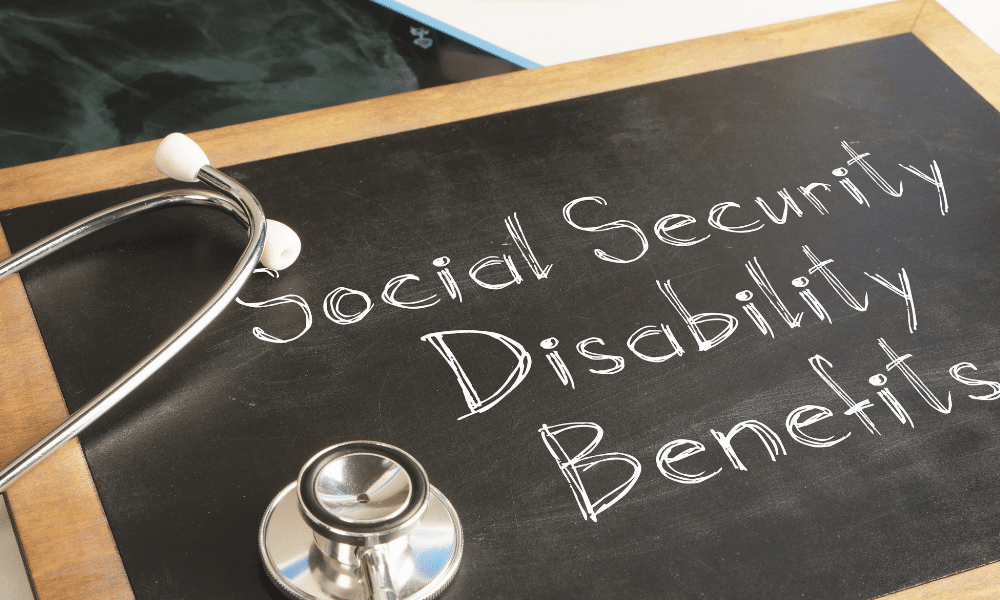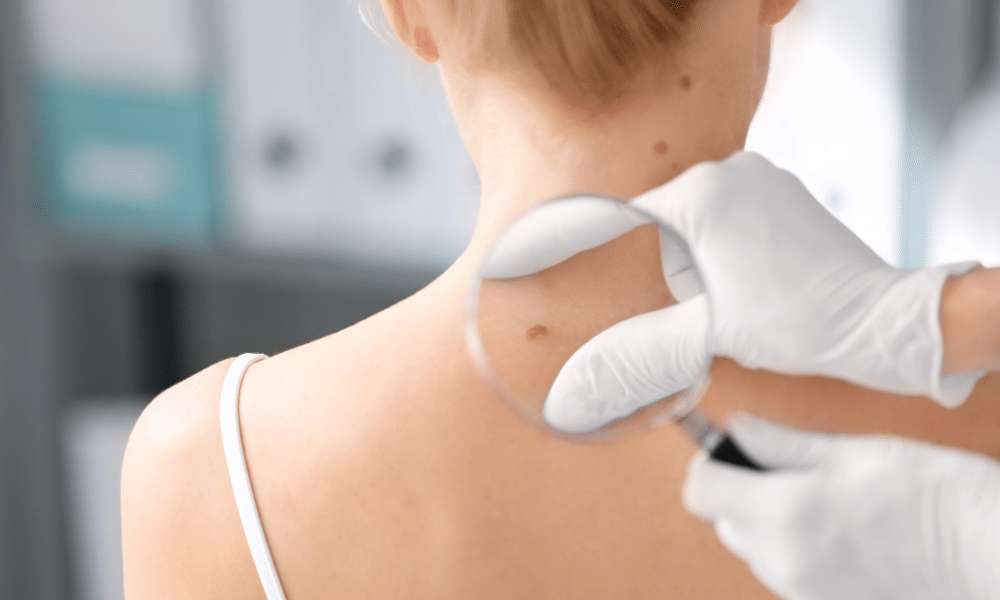
9/11 Cancers & Illnesses
Since September 11th, 2001, almost 40,000 people who lived or worked in Lower Manhattan or responded to the 9/11 attacks between 9/11 and mid-2002 have been diagnosed with cancer by the World Trade Center Health Program (WTCHP).
Besides these life-threatening conditions, tens of thousands of others have been diagnosed with other 9/11-related illnesses as a result of exposure to the toxic dust cloud.
Let us take a look at the most common 9/11 cancers and illnesses affecting WTC survivors and responders.
Most common certified 9/11 cancers
Many survivors and responders have developed 9/11-related cancers, including:
- Non-Melanoma Skin Cancer
- Prostate Cancer
- Breast Cancer (Female)
- Lymphoma
- Thyroid Cancer
- Lung and Bronchus Cancer
- Kidney Cancer
- Melanoma of the Skin
- Leukemia
- Colon Cancer
- Bladder Cancer
Each of these cancers—plus many others—has been certified by the WTCHP. Any survivor or responder affected by these cancers can have their condition monitored and treated for free by the program after registration.
Victims may also be eligible for compensation for economic losses and pain and suffering from the September 11th Victims’ Compensation Fund (VCF).
Most common 9/11 illnesses
According to current CDC statistics, cancer is one of the most common illnesses to affect survivors and responders. The following certified 9/11-related illnesses also affect many individuals:
- Chronic Rhinosinusitis
- Gastroesophageal Reflux Disease
- Asthma
- Sleep Apnea
- Post-Traumatic Stress Disorder (PTSD)
- Chronic Respiratory Disorder
- WTC-Exacerbated Chronic Obstructive Pulmonary Disease COPD
- Anxiety Disorder (NOS)
- Major Depressive Disorder
Besides cancer, then, illnesses affecting respiration, digestion, and mental health are the most common conditions affecting 9/11 survivors and responders.
The established link between 9/11 and cancer
The WTCHP recognizes over 70 types of cancer related to 9/11 exposure. Over 19,000 first responders and nearly 17,000 civilians have been diagnosed with 9/11-related cancers by the program since their exposure to the toxic dust cloud that hung over Lower Manhattan for months after the attacks.
Compared to the general population, prostate cancer rates are approximately 30 percent higher in survivors and responders, while thyroid cancer rates are more than double.
Overview of the main 9/11 cancers and Illnesses
The most common 9/11 cancers affecting survivors and responders are:
- Melanoma and Non-Melanoma Skin Cancer: the most commonly diagnosed cancer among those exposed to 9/11 dust but also, fortunately, among the most treatable.
- Prostate Cancer: regular screenings and early detection can help prevent serious health issues for men.
- Breast Cancer: regular breast cancer screenings for women to detect any abnormalities early greatly increase the chance of survival.
- Lymphoma: a cancer that affects the lymphatic system, developing in the lymph nodes, spleen or bone marrow (Hodgkin’s or non-Hodgkin’s lymphoma).
- Thyroid Cancer: the thyroid gland in the neck is sensitive to environmental toxins, and exposure can lead to the growth of tumors.
- Lung Cancer: the inhalation of carcinogens like asbestos, silica, and other substances has been directly linked to an increased risk of lung cancer for 9/11 survivors and responders.
- Kidney Cancer: Heavy metals and other toxic substances in the 9/11 dust cloud are thought to increase the risk of kidney cancer, with early detection essential.
- Leukemia: blood cancer is 41 percent more likely in survivors and responders, leading to the rapid growth of abnormal blood cells in the bone marrow.
- Bladder Cancer: exposure to contaminants like arsenic, lead, asbestos, heavy metals, diesel fumes, and other industrial chemicals has been linked to bladder cancer.
Besides cancer, the other main 9/11 illnesses affecting survivors and responders include the following…
Respiratory conditions
Elevated levels of chronic respiratory diseases like asthma, chronic obstructive pulmonary disease (COPD), lung disease, and sleep apnea have been reported by 9/11 survivors and responders. As with many conditions, early diagnosis and treatment can prevent the worst health consequences of these illnesses.
Aerodigestive disorders
Illnesses affecting both the respiratory and digestive tracts, such as gastroesophageal reflux disease (GERD) and chronic rhinosinusitis, require regular medical monitoring and treatment to prevent complications.
Mental health conditions
Anxiety disorders, depression, post-traumatic stress disorder (PTSD), and other mental health disorders have been linked to 9/11. The WTCHP provides free monitoring and treatment for these conditions but compensation from the VCF is not provided.
Long latency periods for many 9/11-related cancers
Many cancers have extremely long latency periods. i.e., it takes many years to detect symptoms of the cancer. So, those exposed to toxins in the aftermath of the attacks who have not yet experienced cancer symptoms or any other illnesses may have been lucky—or may still face health risks in the future.
While blood cancers like leukemia and lymphoma often have short latency periods of six months to 2.5 years, lung cancer can surface in survivors and responders even decades after exposure.
Because of the long latency periods of many serious cancers, registration with the WTCHP should be a priority if you were in the 9/11 exposure zone between September 11th, 2001, and May 30th, 2002. This simple act can protect your health for many years into the future.
How the WTC Health Program and Victim Compensation Fund can help
No survivor or responder needs to wait until they experience symptoms of 9/11 cancer or another condition to register with the WTCHP. Registration for those in the exposure zone during the eligible dates is the first step to protecting one’s health with free medical monitoring and treatment available for any 9/11-related health condition that develops in the future.
In fact, those registered with the program and at risk of 9/11 cancers or other illnesses can receive free medical monitoring and treatment until 2090.
If you have been affected by a 9/11-related condition, compensation for medical expenses and pain and suffering from the VCF is the next step after registration with the WTCHP. Our lawyers can file a VCF claim on behalf of victims for the compensation they are entitled to.
Ongoing support for 9/11 victims
Well over two decades after the 9/11 attacks, the full extent of the damage done to people’s health is still being revealed.
Fortunately, after the relentless efforts of many good people and the passing of the James Zadroga 9/11 Health and Compensation Act and the Never Forget the Heroes Act, mechanisms are in place to support those diagnosed with 9/11 cancers and other related health conditions—regardless of when they are diagnosed with their condition.
Free, high-quality healthcare is available, as well as compensation for lost earnings, medical expenses, and pain and suffering.
To discuss your situation and learn more about how we may be able to help you, please call Weisfuse & Weisfuse, LLC at 212-983-3000 or contact us online to schedule a free consultation.
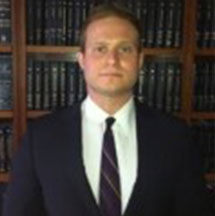
About Jason Weisfuse –
9/11 Victim Compensation Fund Attorney
About Jason Weisfuse –
9/11 Victim Compensation Fund Attorney
Jason E. Weisfuse is a seasoned 9/11 cancer attorney and managing partner at Weisfuse & Weisfuse, LLC, a New York City-based law firm dedicated to representing individuals affected by the September 11th attacks. Since the establishment of the September 11th Victim Compensation Fund (VCF), Jason has been instrumental in assisting first responders, survivors, and families in securing the compensation and medical benefits they deserve.
With a Juris Doctor from New York Law School (2009), Jason brings extensive experience regarding the 9/11 Victim Compensation Fund to his practice. His deep understanding of the VCF and the World Trade Center Health Program (WTCHP) has enabled him to navigate complex claims processes effectively, resulting in substantial awards for his clients.
Jason’s commitment to the victims in the 9/11 community is evident through his active involvement in professional organizations such as the New York State Trial Lawyers Association and the American Association for Justice. He has also contributed to legal discourse with publications in the New York Law Journal, reflecting his dedication to legal excellence and advocacy.
At Weisfuse & Weisfuse, LLC, Jason continues to provide compassionate and knowledgeable representation, ensuring that those affected by 9/11 receive the support and compensation they are entitled to.


